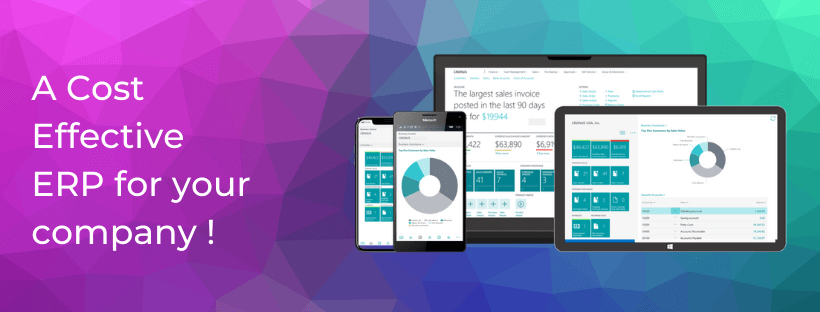- July 25, 2023
- Posted by: Mustafa Chohan
- Category: Business plans

In the new age of Technologies, Microsoft dynamics (ERP) Enterprise Resource Planning systems are a very powerful applications that help to integrate and manage various business processes for many departments within an organization. Here is a list of some of the key functions and features of Microsoft dynamics ERP Systems:
Consolidate Data
ERP systems help to consolidate data and its processes across different departments and helps streamline the functions of an organization. They also enable seamless information flow and collaboration. They help to integrate areas into separate modules such as finance, human resources, supply chain, manufacturing, sales, customer relationship management (CRM) and much more.
Centralized database
Most of the Microsoft ERP Systems has the capabilities to maintain a centralized database whereby all the relevant data is stored either on the server or on the cloud, depending upon the type of database the customer has opted for. This helps users from different departments to have access and share information in real-time, eliminating data silos and mitigates data integrity.
Financial Management Module
The backbone of an ERP system is Financial Management Module, this module includes areas like general ledger, accounts payable and receivable, budgeting, fixed assets, cash management, and financial reporting. All these modules help in managing and tracking financial transactions, manage budgets, and generate financial statements.
Managing the Supply chain
Another key module that ERP System has to offer is of managing the entire supply chain, from the point of procurement and inventory management to the point of production, planning and logistics. This module helps to streamline the procure to pay process, optimize inventory levels, track all kinds of shipments, and facilitates collaborations with suppliers.
Planning and Managing Manufacturing Processes
Almost all ERP systems assist in planning and managing manufacturing processes. They mostly help with production scheduling, material requirements planning, capacity planning, shop floor controls, quality management, and product lifecycle management.
Managing resources
Managing resources without the help of ERP System is impossible, ERP provides a 360-degree access to HR modules. It helps to management employee data, payroll, benefits, administration, performance management, trainings, and recruitment. They provide a centralized system for managing employee records, tracking attendance, and supporting HR Processes.
Manage Customer Interactions
ERP systems often have the idea of incorporating CRM functionality to manage customer interactions, sales leads, marketing campaigns, and customer support. This mostly helps enable businesses to enhance customer satisfaction, track sales opportunities, and improve customer service.
Microsoft Dynamics ERP Reports and Analytics
ERP systems help generate reports and provide analytical tools to help businesses make day-to-day decisions. They often offer real-time insights into various aspects of the organization. Allowing all most all the managers to monitor the performance, identify trends, and make data-driven decisions.
Automate business processes
These systems also help to automate business processes, reduces manual efforts, and helps improve the efficiency. The system can create workflow automation for tasks which may include purchase approvals, invoice processing, order fulfilment and employee onboarding.
ERP systems are designed in such a way that the can easily be enhanced according to the requirement of the customer.
As the organization grows so does their processes change. Hence, its important to have an ERP System which has capabilities to scale up and accommodate additional requirements. From the users, functionalities, and business units.
Microsoft Dynamic ERP Systems offers flexibility to adapt to changing business needs and support customization based upon specific requirements.
I would just like to highlight the fact that Microsoft d365 ERP Systems provide a comprehensive solution. To manage and optimize various aspects of an organization, integrating business processes and facilitating data-driven decision-making.




